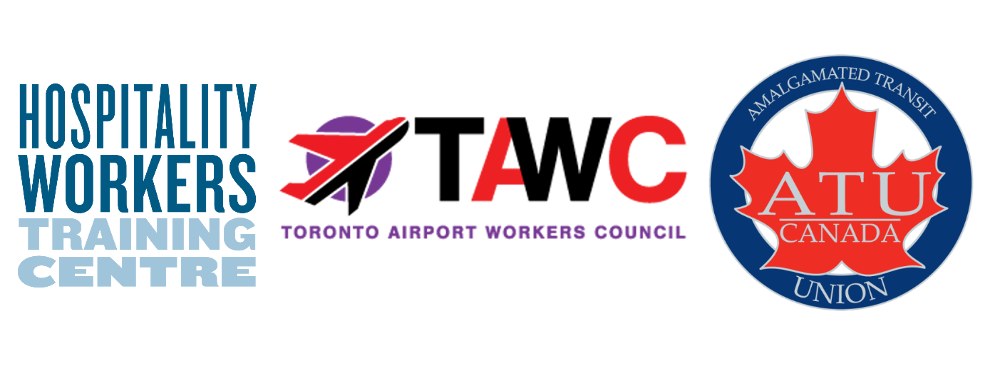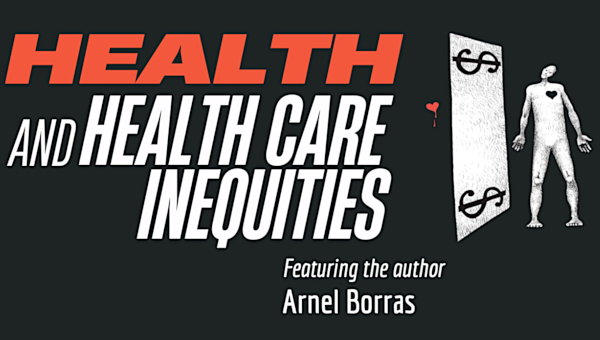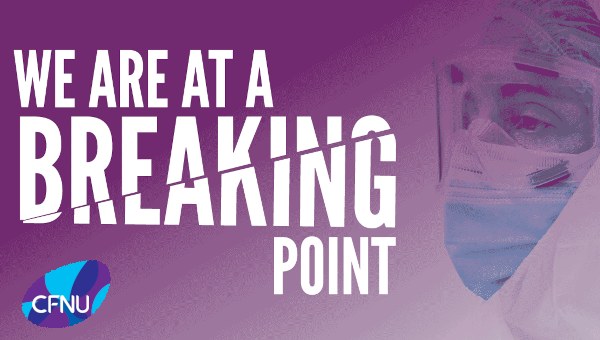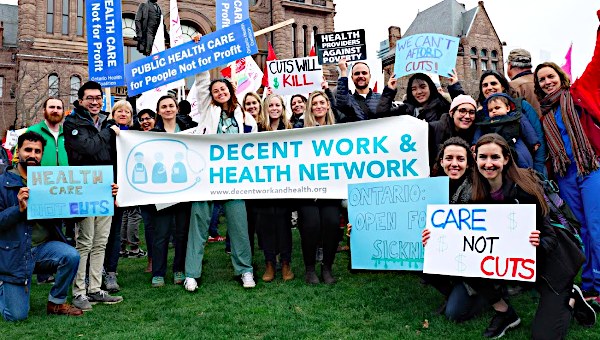Supports for Workers and Covid-19: Two Responses
Statement from Workers in Toronto’s Travel, Hospitality, and Transportation Sectors

Our economy is built upon mobility. We all move short and long distances every day in an interconnected global economic system. The COVID-19 pandemic will affect all working people and the impact on travel, hospitality and transportation workers will be significant. These are the workers in hotels, airlines, airports, and public transit that literally keep the economy moving. As those representing travel, hospitality and transportation workers in Toronto, we ask the following of government and employers as we manage the pandemic.
1. Health and Safety First. As workers providing services and interacting directly with the public, every precaution must be taken to limit the spread of COVID-19. To maintain the health of workers and the public, we must make travel and transit safe. On March 15, 2020 a Canada Border Services Agency officer was tested positive. These workers are on the front-line of screening travellers.
While it is crucial to maintain services, expanding the right to refuse unsafe work, must be an option to keep workers and the public safe. For example, if employers are unable to provide bus drivers or other workers with masks, those workers must not be sanctioned for refusing to work.
Properly trained workers must be allowed to clean and be provided with proper chemicals and equipment. Specifically, room attendants must be allowed to clean rooms daily. This means suspending ‘green choice’ programs in hotels that give guests the option of not having their rooms cleaned for loyalty points or other incentives. At the same time, flight attendants are not trained to clean during a pandemic and should not be expected to provide extra cleaning duties. Resources must be directed to extra cleaning by airlines, airports, hotels and public transit agencies. Further, these practices must continue in the future in order to enhance service and prevent future pandemics.
2. Childcare. Our sectors employ tens of thousands of workers with childcare responsibilities. We ask that these workers, mostly women in some workplaces, be accommodated to care for children over the next three weeks as schools in Ontario close. Parental hardship needs to be recognized by employers as a valid reason for an employee being unable to work. We also renew our demands to build daycare facilities closer to places of work. Airport workers have demanded daycare facilities at Pearson for years.
3. Income Supports. Workers in travel, hospitality and transportation will be greatly affected as demand for mobility decreases throughout the pandemic. We encourage governments and travel, hospitality and transportation employers to work with unions to explore work sharing programs and voluntary layoffs that maintain benefits for workers. The most important assistance the government can give right now is to ensure all affected workers will have their wages guaranteed. Tax cuts are less effective than reimbursement to employers who avert layoffs and invest in training.
4. Retention and Retraining. The COVID-19 pandemic will end, and the economy will recover. Again, we encourage government and employers to work with us to plan the future in the present. This means developing a layoff aversion strategy that provides opportunities for workers to upgrade their skills and retrain during the downturn. Programs that subsidize precarious workers to upgrade their skills to fill in-demand positions during the recovery will yield long term benefits. Such programs can range from basic computer skills and language training to more technical training and certification to operate new equipment. Travel and transportation are growth areas of the economy and we must invest in and retain workers now to avoid long-term losses of skilled people.
How we work together today will determine how we build for tomorrow. •
- Mandie Abrams
Executive Director, Hospitality Workers Training Centre - Steven Tufts
Spokesperson, Toronto Airport Workers’ Council - John Di Nino,
President, ATU Canada
Federal Measures Fall Short for Workers
The Fight for $15 and Fairness and the Workers’ Action Centre are calling on the federal government to ensure a weekly minimum payment of $573 for all financial support programs during the pandemic, whether administered through EI regular and special benefits, the Emergency Care Benefit or the yet-to-be released COVID-19 Emergency Support Benefit for workers who can’t access EI. $573 is the maximum weekly benefit under current EI rules.
“The Federal government’s new Emergency Care Benefit sounds promising,” said Pam Frache, Coordinator of the Fight for $15 and Fairness. “But if it is administered along the lines of EI, providing only a portion of previous wages, it will be meaningless for the workers who need it most. Providing only 55% of a minimum wage is a disaster.” The Emergency Care Benefit announced earlier today (March 18th) is intended for those who must stay home from work for illness, self-isolation, or to look after children.
“Canada – and the provinces – should be following the lead of Quebec that is providing $573 weekly assistance for workers who must self-isolate,” said Deena Ladd, Executive Director of the Workers’ Action Centre. “Federal and provincial governments keep saying they will spare no expense to look after workers, well now is the time to put money where their mouths are.”
“We have real concerns about the length of time workers will be without income,” said Ladd. “Workers living paycheque to paycheque can’t afford to lose a day’s pay, let alone a week’s pay. We need the federal government to waive the one-week waiting period for all EI regular and special benefits – not just for sickness benefits due to COVID-19.”
“Our centre is also being inundated with phone calls from workers who are saying they can’t get through on the EI hotline,” added Ladd. “This reflects chronic understaffing of our EI system. We need a dramatic increase in EI staff – and we urgently need information to be made available in multiple languages online and over the phone.”
“There’s another potential crisis looming as well,” said Frache. “The government’s website says that applications for COVID-19 Emergency Support Benefit – the benefits that are intended to help those who can’t get EI – won’t be available until April with no guarantee of turnaround time for workers in the most desperate situations and who urgently need money now.”
“One thing is becoming increasingly clear: this chaos – borne by people in the most vulnerable situations – stems directly from the absence of paid emergency leave rules at both provincial and federal levels,” said Ladd. “Had we had policy in place that mandated at least 7 paid days of emergency leave for all workers, provincially and federally, and had these policies provided for an additional 14 days of paid emergency leave during a pandemics like COVID-19, we wouldn’t have the financial desperation facing millions of people across Canada.”
“We continue to be shocked that no level of government has prioritized adequate minimum paid emergency leave days,” said Frache. “All the medical evidence shows that paid emergency leave policies of not less than 7 days, pay for themselves by allowing sick workers to stay home or look after sick kids, and by containing the spread of flu and other contagious diseases. In the context of coronavirus, paid emergency leave laws provincially and federally would have better protected public health – and bought the federal government time to roll out an effective, comprehensive plan to stabilize the economy.”
“We continue to demand action on paid emergency leave provincially and federally, and we look forward to additional announcements that will ensure that long term and temporary measures provide workers with adequate financial support to protect themselves, their families and their communities,” said Ladd. “As we have been saying, there’s not a moment to lose.” •






